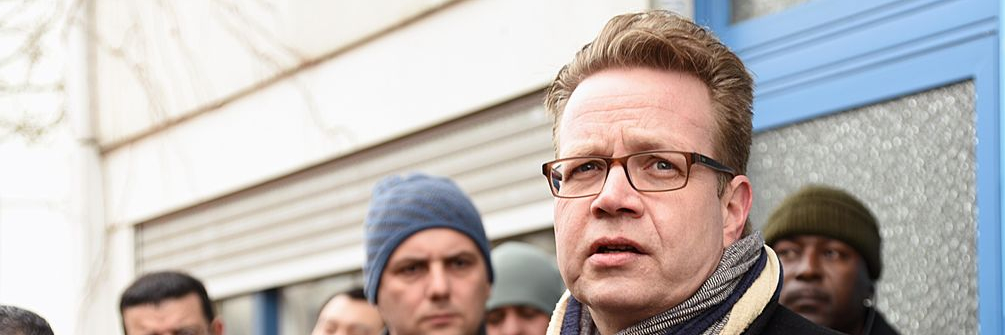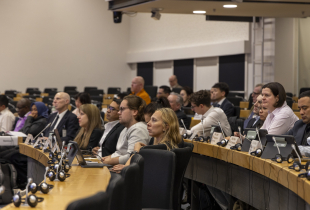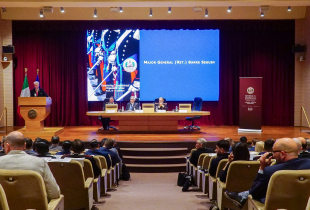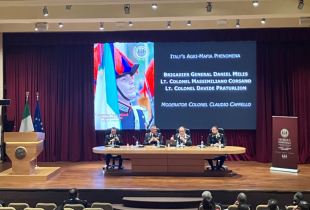
New Marshall Center Security Insight Paper Proposes New European Framework to Counter Terrorism Through Its Connections With Organized Crime
By Public Affairs Office
George C. Marshall European Center for Security Studies
GARMISCH-PARTENKIRCHEN, Germany (March 11, 2016) - The George C. Marshall European Center for Security Studies recently published a research paper that explores the convergence between terrorism and organized crime and emphasizes the need for a specially-designed framework to counter terrorism accounting for these connections.
The paper, “Revisiting Convergence: Adapting Europe’s Security Strategy to Emerging Challenges” was coauthored by the former director of Europol Jurgen Sorbeck and George C. Marshall Center professor Dr. Sebastian von Muchow. In the, the authors argue a more vigorous fight against organized crime and the illicit trade with goods, such as cigarettes, electronic devices and spare parts or brand clothing, is needed to cut-off the funding of international terrorism. According to their research, organized crime and illicit trade are major factors in how terrorist groups are funded. Storbeck and von Münchow point out that the Charlie-Hebdo attackers and the group who orchestrated November 2015 Paris attacks received funding through petty crime.
“Illicit trade is a relevant driver of terrorism and cannot be disregarded as one one of the most lucrative ways for terrorist groups to obtain funding. Unfortunately, the European Union neglects this connection,” said von Munchow.
According to the authors, nine different agencies in the European Union, such as Europol, Frontex and Eurojust, are in charge of both internal and external security as well as the fight against terrorism.
“When acting independently, they do a good job. But together, much more cooperation is necessary and there is no joint body at the EU level to synergize the organization. There needs to be a better framework to improve the cooperation of the European agencies as well as national authorities to strengthen the cross-border fight,” said Sorbeck.
The authors also cite outdated techniques such as law enforcement focus on money laundering. Terrorist organizations have no reason to channel illegally-acquired income into legal finance streams. Terrorist groups use illegally-acquired income to buy illegal firearms and explosives. They simply do not have to launder the money.
The paper proposes a future strategy of “smart containment” that mixes dialogue, defense and deterrence without sacrificing Euro-Atlantic values and nine prioritized actions to raise EU security policy to a higher standard. This will provide a more effective response to emerging challenges facing Europe.


